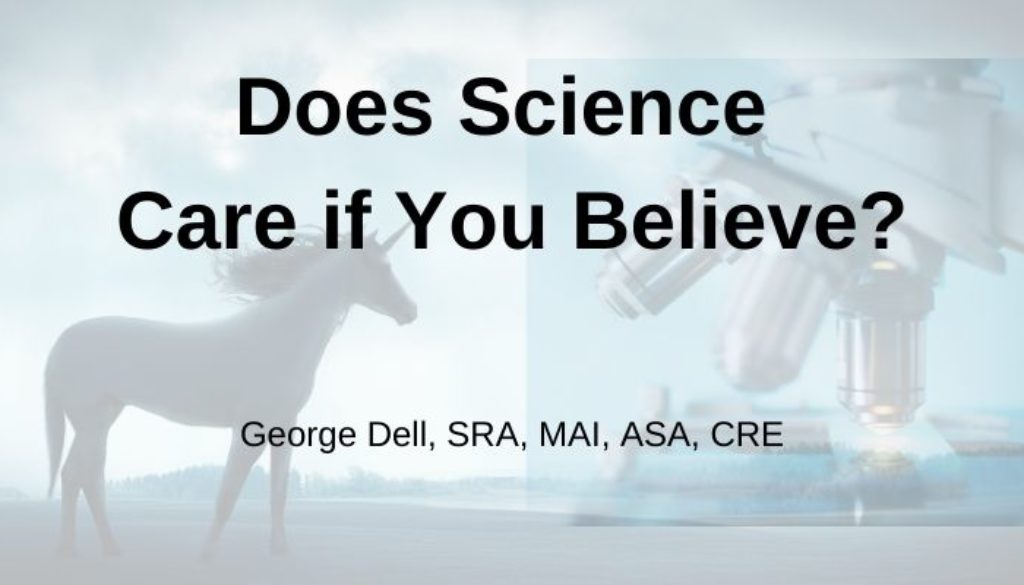Science is “systematic study through observation and experiment.” A method. But wait, there’s more! Science is both a process and an organized way of thinking. It follows some basic principles. Darn! It seems science does not care if you believe in it or not!
There is process in science:

There are also principles in science. A principle is more like a protocol, or standard. These are similar to the “generally accepted principles” like we find in the accounting profession, and in appraisal (USPAP).
- Extraordinary claims need convincing evidence.
“This house would be great as a gas station.” One case, anecdotal information, can help make a claim possible, but is not convincing alone. A great deal of fundamental market demand analysis would be needed.
- Contrary hypotheses need to be ruled out.
The four guidelines for “Highest and Best Use” are: 1) physically possible; 2) legally permissible; 3) financially feasible; 4) highest value. If it’s an apartment, it’s not a restaurant.
- Correlation does not mean cause-and-effect.
Just because two things appear to move in relation to one another does not mean one causes the other. Variable #1 can cause #2. Or variable #2 can cause #1. Or — both can be caused by a third variable, and finally, the correlation might be the result of random chance.
- Falsifiability
There must be a way to prove a hypothesis false (Karl Popper). This comes from the idea that anything might be weirdly wrong or have unexpected exceptions – and you can never prove that thing right. You can only work toward the truth.
- Replicability
Replicability means the analysis can be recreated exactly. In valuation, it means the data selection and the algorithm can be re-applied, and result in the same answer. Repeatability means another analyst can take the same assumptions and reach a similar answer. What is important is that any difference can be accounted for in the reproducible analysis.
- Parsimony
Simplicity is better than complexity. This is often called “Occam’s Razor.” Understandability is important to usefulness. One of the strongest arguments for why appraisers use only four or five comparables is that the human mind can only hold a few thoughts at once. Beyond six or seven, it simply blurs relationships. Complexity.
- Cognitive bias
Humans do science. Humans have biases. Biases are pervasive affecting analysts as much as they affect psychologists and ordinary people. Good science recognizes inherent human prejudice. Do you believe?
